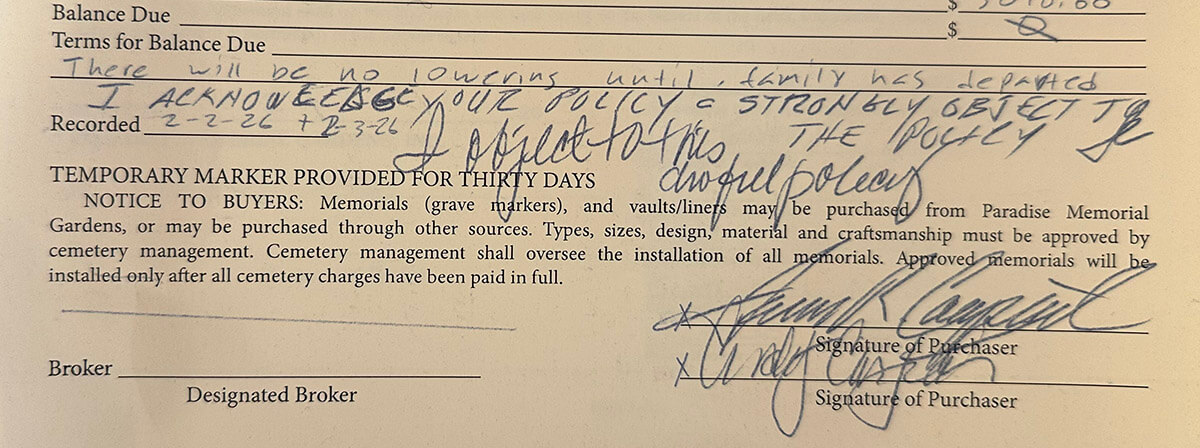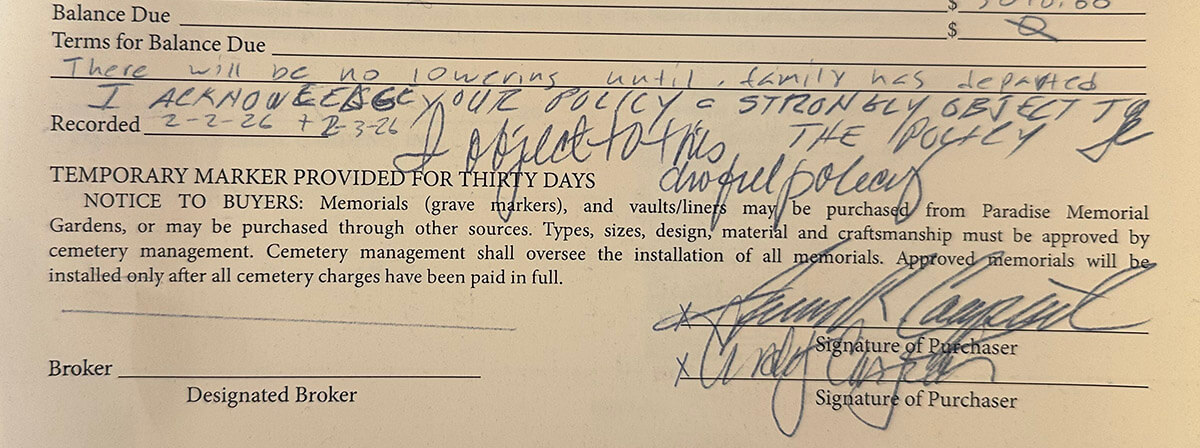Uncategorized
My grandmother was a ‘Sherlock Holmes of Yiddish song,’ but she couldn’t solve the mystery of antisemitism
(JTA) — When I was younger, my family sang Yiddish songs at almost every holiday and gathering.
Funny songs, sad songs, songs about love, about the Holocaust, about hunger, about labor and resistance — the usual Yiddish fare. My Bubby, Chana Mlotek, a Yiddish archivist and ethnomusicologist, collected hundreds of them with my Zeyde, Yosl Mlotek, who became known as the address for Yiddish in America. Nobel laureate Isaac Bashevis Singer called them “the Sherlock Holmeses of Yiddish folk songs” for their investigations of Jewish music.
We would gather by the piano in my grandparents’ living room in the Bronx, with the piano being helmed by my Bubby, sometimes my great-aunt Malke Gottlieb (with whom my Bubby compiled a collection of songs from the Jewish ghettos), then my father, then my uncle. Eventually each of the eyniklekh — the grandkids — would have to sing in Yiddish.
Of course, I didn’t recognize until I got older that Yiddish songs are an incredible porthole into history, while also testifying to the vivaciousness of a people nearly destroyed and a culture almost erased. It’s through these lyrics and other stories from my grandparents that I learned the history of our people and the faith we had in America, “Dos Goldene Land,” where immigrants came to escape religious persecution. One famous song, in particular, was about the tragic letdown of this promise.
“The Ballad of Leo Frank” was about the Jewish factory manager from Atlanta. In 1913, a 14-year-old employee at his pencil factory named Mary Phagan was found dead. Frank was accused of her murder on flimsy evidence.
After a trumped-up trial, a biased jury found Frank guilty after four hours of deliberation. The case was retried, and appealed before the United States Supreme Court, without success. Hundreds of thousands of petitions were sent to Gov. John Slaton of Georgia, who eventually commuted the death sentence to life imprisonment. But months later, a bloodthirsty gang, who were later to inspire the resurgence of the Ku Klux Klan, kidnapped Frank from jail and lynched him.
Thanks to Yiddish music, we knew all these facts. The painful details of the Frank case were heard in melancholic Yiddish songs like “The Ballad of Leo Frank” and “Lebn zol Columbus” (“Long Live Columbus”), which we as children crooned around the piano in the living room of my Bubby’s apartment.
“A bilbl hot men oysgetrakht / Oyf undzern a yidl” — they made up a blood libel about one of our Jews — goes the lyrics from one of these songs.
We sing these songs to learn about our history, hoping never to repeat it. But just a couple weeks ago, antisemitic mobs weren’t just part of a songbook. They were here, right in the heart of New York City.
Frank’s story is the subject of a new revival of a Broadway musical, “Parade,” starring Ben Platt, which opened this month at the Bernard Jacobs Theatre. During previews, members of a neo-Nazi group called The National Socialist Movement rallied outside the theater, handing out leaflets and accusing Frank of being a pedophile and a murderer. Mostly, they were there to stoke fear and rekindle the same Jew hatred that cost Frank his life more than a century ago.
This is only the latest example of what has been an alarming growth of antisemitism in the United States. Jews who grew up learning (or singing) about blood libels in Russia have always slept with one eye open, haunted by the fear that antisemitism would rear its ugly head here, too.
Just last week as I entered the subway in midtown Manhattan, I was verbally accosted by a man who lowered his shirt collar to show me his swastika tattoo. And so the story goes.
As Passover approaches, the words of the Haggadah come to mind: “b’khol dor vador” — in every generation. In every generation, enemies emerge and the responsibility to rekindle learning and reclaim identity falls upon us, each in our own unique way.
It feels fitting then that my grandparents’ anthology is now accessible to a whole new audience.
The Yosl and Chana Mlotek Yiddish Song Collection at the Workers Circle went live this week. It is a searchable, comprehensive database of Yiddish music and song, spanning centuries, genres, artists and more, bringing my grandparents’ anthologies online. Hundreds of Yiddish songs, including the Leo Frank ballad, can be freely accessed thanks to a thorough digitization process overseen by my brother, Elisha Mlotek, who served as creative director for the website.
Sponsored by the Mlotek family, this new website is a loving collaboration between the Arbeter Ring (Workers Circle) and the Mlotek family and will ensure Yiddish song and in turn Jewish history never cower in the face of prejudice. As Elisha describes the music collected on the website, “It is an essential record of our people — the richness and resilience of our culture.”
My grandfather died in 2000. Chana died in 2013, at age 91. Bubby’s piano now lives in my father’s office at the National Yiddish Theatre Folksbiene, but we still come together around song. (In fact, it was my cousin Lee who recently reminded us of the Leo Frank song he learned from my uncle in an Arbeter Ring shule, or school.)
This Thursday my Bubby’s sons, her grandchildren and even some of her great-grandchildren will participate in a tribute concert to her at the YIVO Institute of Jewish Research, where Chana served as the music archivist for decades. The in-person free concert, presented in collaboration with Carnegie Hall and which can be streamed digitally, will include family friends who also happen to be some of the most special Yiddish singers of the day, including Joanne Borts, Sarah Gordon, Elmore James, Daniella Rabbani, Eleanor Reissa, Lorin Sklamberg and Steven Skybell, who played Tevye in “Fidler Afn Dakh,” the Yiddish production of “Fiddler on the Roof.”
Now is as welcome a time as any to celebrate Jewish life, learn a Yiddish song and discover the lessons of history along the way.
—
The post My grandmother was a ‘Sherlock Holmes of Yiddish song,’ but she couldn’t solve the mystery of antisemitism appeared first on Jewish Telegraphic Agency.
Uncategorized
Millennial anxieties are the ‘new normal’ in these Yiddish stories

This is a revised version of the original article in Yiddish which you can read here.
Di Tsukunft (The Future)
A book of short stories in Yiddish
by Shiri Shapira
Leyvik House, 2025
You may not have heard about Shiri Shapira yet but you may do so soon. She’s one of the few young Israeli writers who are choosing to write in Yiddish, the language of her East European ancestors. A collection of her short stories was recently published by the Tel Aviv publishing house, Leyvik House, with the support of Israel’s National Authority for Yiddish Culture.
Like the author herself, the protagonists in her new collection of short stories and autobiographical pieces, Di Tsukunft (The Future), are average Israeli men and women with everyday worries about their livelihood, families and health problems. But beneath their daily routine lies a latent personal experience that waits for a critical moment to be revealed. When that moment arrives, the characters often enter a new phase of life.

For the 13-year-old heroine of the opening story, also titled “The Future,” this happens in 2001. The terror attacks of 9/11 in New York City coincide with the onslaught of terror in her own town:
“The changes to daily life were immense. A seemingly endless series of discussion circles was held in memory of a victim from our school that I hadn’t known. Every morning I’d have to look at his smiling, pimpled face staring out from the enlarged photo that had been hung by the school gate.”
Thus 2001 ushered in the “terror attacks of the future […] up to the very skies, shining, silvery.” They became an indispensable part of the ‘new normal’ — for Shapira, the State of Israel and the entire world.
The word “future” is both the title of the book, and the name of the first and last stories in the collection. The term is key to Shapira’s work: for the author and her characters alike, the future is dangerous and uncertain.
Notably, “The Future” is also the name of one of the most important Yiddish literary periodicals, Di Tsukunft, published in New York from 1892-2010. In one of the more autobiographical pieces in the collection, also titled “Future”, Shapira writes about cataloging articles of Di Tsukunft for the Index to Yiddish Periodicals at the Hebrew University in Jerusalem. The concluding story “Future” highlights Shapira’s turning to Yiddish, which comes to loom so large in her life.
Shapira shares how she’d initially hoped to read the issues of Di Tsukunft and “learn everything about Jewish history.” Instead, she found herself reading the Israeli press, with its news of terror attacks in Israel, day after day, during the 2015-2016 wave of violence known as the “Intifada of the Individuals.” Israeli reality cancelled out the beautiful, visionary future of those long-ago Yiddish socialists: “What’s there to say about the future? The future’s a thing of the past.”
Shapira recalls: “As a child, I had the impression that I’d come too late for the past, and that someone whose past was shut off to them was of little use for the future.” Shapira references here a national oblivion around the “past”: Israeli society’s longtime neglect of Yiddish and Eastern European Jewish culture.
This neglect, however, served only to awaken her own interest in Yiddish. Historical inquiries and philosophical questions such as this one are woven skillfully into the narrative fabric of her stories.
Shapira’s characters live in Israel and speak Hebrew. Most of them don’t know Yiddish. Shapira herself is a Hebrew writer who has translated a significant number of works from German into Hebrew.
Sometimes Shapira’s tone is bitterly ironic, especially on the subject of the writer’s bleak lot in today’s society. The protagonist of “Self-Portrait as a Hebrew Writer” fantasizes about her ideal reader:
“He comes to an event celebrating my first book, my debut. […] He sits there, looking ridiculously handsome, listening to me babble about the difficult, wrenching labor of writing this text. When the musicians finish their part, he applauds energetically.”
The man reads her book twice and, as she comments ironically, “sees deep into her soul.” Their encounter takes them to the bedroom: “As he climaxes, he lets out a sweet sigh, a melody of contentment — like an enthused, eloquent review.”
So what role does Yiddish play here? Her stories suggest an answer.
In “Earthquake,” an elderly couple, Benny and Dalia, survive an earthquake in Jerusalem. Their modern apartment is unharmed, but many buildings in Shuafat, a Palestinian refugee camp in East Jerusalem, are destroyed, and around 700 people are killed. The couple’s Arab cleaning lady goes missing, and no one knows what happened to her.
For the couple, life goes on as usual. They quickly forget the cleaning lady, especially because they never even knew how to pronounce her name. Jews and Arabs make their home in the same town, but they live in completely different worlds.
Every night, Benny and Dalia eat dinner and nap a bit while watching a TV show. Something new does enter their routine; they sign up for a Yiddish class. Though they barely remember any of the Yiddish their parents once spoke, they hope they’ll “at least learn something before the next earthquake comes.”
The earthquake acts as a metaphor for the dramatic and tragic events that take place in Israel. These misfortunes cut through the monotony of the everyday, but soon enough life goes on as before. In such moments, Yiddish makes its appearance as a sort of phantom of Jewish history from which one might “at least learn something” before the next crisis hits.
Shapira remembers a feeling that used to disturb her as a child: “I was really young, and I thought that everyone besides me knew what to do in every situation, that they were grounded in their lives, while I was the only one floating in the air, not knowing where to land safely.” Yiddish, on the other hand, creates a kind of spiritual shelter, a ‘refuge’ where historical roots can be found.
Shiri Shapira has a keen sense of time in general and of the present moment in particular. In her stories, time flows naturally for months on end, then suddenly brings on changes in the lives of individuals and of society at large. Every day has the potential for danger. Written in Yiddish, Shapira’s stories build imaginary bridges between the troubling present and the past that has nearly disappeared from Israeli memory.
To buy the book, click here.
The post Millennial anxieties are the ‘new normal’ in these Yiddish stories appeared first on The Forward.
Uncategorized
An Arizona cemetery now requires mourners to leave before burial. A rabbi plans to sue.

At Jewish funerals, the final act is often the simplest: the casket is lowered into the earth, mourners take turns with a shovel, and the grave slowly fills. It is a moment many rabbis describe as the essence of burial — the point at which ritual, grief and physical reality meet.
At a cemetery in Scottsdale, Arizona, that moment now does not happen.
A new safety policy at Paradise Memorial Gardens requires families to leave before a casket is lowered into the ground. Cemetery officials say the rule, which applies to all funerals, is necessary to prevent accidents, likely involving uneven ground, heavy equipment and mourners overcome with grief. But Jewish clergy say the policy interferes with a core religious ritual, and one local rabbi is preparing a lawsuit.
For Cindy Carpenter, 66, the dispute became painfully personal.
Her younger daughter, Chelsea, died at 33 of cancer in November. As Carpenter arranged the funeral, she and her husband purchased five burial plots at Paradise — for their two daughters, themselves and Chelsea’s husband — expecting the family would be buried together and according to Jewish practice. In total, the plots cost about $50,000, Carpenter said.
Eleven weeks later, Carpenter returned to the same cemetery to bury her older daughter, Cortney, who had significant disabilities and died at 40 after a long illness. Between the first funeral and the second, Carpenter said, the cemetery moved from compromise to refusal.
At Chelsea’s funeral, after intervention from local rabbis, mourners say they were allowed to stay but were placed around 20 feet away behind a rope while the casket was lowered. It was an imperfect accommodation Carpenter said she accepted. She understood the attempt to balance safety and tradition.
When Cortney died at the end of January, Carpenter said, that accommodation was gone. The standardized printed contract for the graveside service had added to it an additional handwritten note at the bottom stating that the casket would not be lowered until the “family has departed.” Carpenter said she was told that they had to leave the property altogether and that her request to stay inside a building at the cemetery and watch from a window was denied. Carpenter and her husband, Jim, signed under protest because the funeral was the next day.
Cindy added her own handwritten note: “I object to this awful policy,” while Jim wrote: “I acknowledge your policy & strongly object to the policy.”

“We’re grieving parents for the second time in 11 weeks,” Carpenter said in an interview. “And you’re telling me I can’t stay to see my daughter buried?”
Rabbi Pinchas Allouche of Scottsdale’s Congregation Beth Tefillah, who officiated at the funerals for both of Carpenter’s daughters, confirmed that everyone who came for Cortney’s funeral was told they could not wait in their cars and had to leave the property. “It was horrible,” Allouche said.
Afterwards, Allouche sent his 24-year-old son back into the cemetery — dressed in a baseball cap and sunglasses — to pretend to be a random person visiting a nearby grave. “From there,” Allouche said, his son “took a video of the lowering of the casket and the covering of the grave for the family to have some slice of comfort in all this.”
Cemetery officials say the rule is not aimed at any one faith. Sabrina Messinger-Acevedo, CEO and owner of Messinger Mortuaries, which operates Paradise Memorial Gardens, said the cemetery is non-denominational and that its safety policies are applied uniformly. She acknowledged the new policy does “not fully align with certain religious traditions,” but said it was adopted after past incidents in which attendees failed to follow staff directions, creating safety concerns.
Messinger Mortuaries operates multiple funeral homes, cemeteries and crematories across Arizona, including Paradise Memorial Gardens, which has a large Jewish section.
Cortney’s funeral was Feb. 3, but the dispute did not gain attention until it was reported by the local news on Feb. 16. Carpenter said the delay was due to the non-stop coverage of the Tucson disappearance of Nancy Guthrie, the mother of Today show host Savannah Guthrie.
Eddie Dressler, a funeral director who has served Atlanta’s Jewish community since the 1990s, said he has never encountered a cemetery policy requiring families to leave before the lowering of a casket. “Having a rule like that is just crazy,” Dressler said.
The only similar restrictions he has seen are at some U.S. Department of Veterans Affairs cemeteries, which open multiple graves at once for logistical reasons — but even there, he said, exceptions are typically made for Jewish burial practices.
Safety and spirituality
Allouche said the rule removes what Jewish law considers the defining moment of burial. The lowering of the casket and the covering of the grave, he said, are not symbolic gestures but the final act of care for the dead — one traditionally performed with mourners present and often participating.
Allouche said he is working with an attorney and expects to challenge the policy, arguing that families who purchased plots in the cemetery did so with the expectation they would be able to bury loved ones according to Jewish practice. Applying the rule without exception, he said, effectively prevents that.
Rabbi Randy Brown, the resident rabbi at Arlington National Cemetery who has officiated at more than 900 funerals there, said safety concerns at gravesides are real. He has personally helped prevent people from falling in “dozens of times.”
But Brown said most cemeteries do not impose blanket bans. Instead, clergy, funeral directors and grounds crews typically coordinate accommodations, such as keeping families at a distance during the lowering and allowing them to return afterward to place earth on the grave, a practice that preserves both safety and ritual meaning.
Graveside funerals, he said, function both as sacred ritual and, with bulldozer equipment nearby, active work sites. Arlington, he added, approaches each burial individually — considering weather, terrain and family needs — rather than applying a single policy to every service.
Brown described the moment when earth strikes the casket as emotionally powerful for many mourners, recalling his own experience at his grandmother’s funeral as “visceral and cosmic.” That meaning, he said, is why cemeteries and clergy typically seek practical compromises. “It’s not one size fits all,” he said.
Religious disputes have surfaced elsewhere. In Atlanta in 2023, for example, a synagogue threatened to sue after a cemetery policy was seen by rabbis as interfering with Jewish burial customs. The cemetery eventually settled.
Allouche said he expects legal action to move forward. Some families who own plots at the cemetery have begun reconsidering their plans, he said, while others are waiting to see whether the cemetery revises its rules or reaches a compromise with community leaders.
Messinger-Acevedo said her company — founded in 1959 by her grandparents, Paul and Cora Messinger — has “deep roots in the community” and a commitment to serve families with “care and compassion.” She said they offer “partial refunds to families who choose to rescind the purchase of an unused burial space” — a complex decision for those with relatives already buried at the cemetery.
Carpenter said the dispute is not something she wanted to fight, but one she felt compelled to pursue. Nearly two decades ago, she founded Cortney’s Place, a day program for adults with disabilities created in her older daughter’s honor, and is now working with local clergy to create “Shabbat boxes” for Jewish patients in hospitals — small packages with challah, candles and grape juice inspired by Chelsea.
“I fought for them all of their life,” Carpenter said. “And this is no different.”

The post An Arizona cemetery now requires mourners to leave before burial. A rabbi plans to sue. appeared first on The Forward.
Uncategorized
Vanderbilt launches inquiry into instructor after math question about Israeli occupation draws criticism
(JTA) — Vanderbilt University has launched an inquiry into a mathematics lecturer whose classroom exercise about Palestinian territory drew criticism from the activist group StopAntisemitism.
Tekin Karadağ, a senior lecturer at the university’s department of mathematics, drew the ire of the antisemitism watchdog after it obtained a slide from one of his lectures that used a pro-Palestinian protest slogan and suggested that Israel was shrinking the Palestinian territory.
“Assume Palestine as a state with a rectangular land shape. There is the Mediterranean Sea on the west and the Jordan River on the east,” read the slide. “From the river to the sea, Palestine (…) was approximately 100 km. in 1946. The land decreases by 250 sq. km per year, due to the occupation by Israel. How fast is the width of the land decreasing now?”
Karadǎg, a Turkish national who received his PhD from Texas A&M University in 2021, included the question under “examples related to the popular issues” in a survey of calculus class, according to StopAntisemitism, which wrote in a post on X that Karadǎg was “bringing his anti-Israel, antisemitic bias into his classroom.”
In a statement shared with the Jewish Telegraphic Agency, Vanderbilt said that the content had been removed and that an inquiry had been launched into Karadağ.
“The university has received reports alleging a member of the faculty engaged in unprofessional conduct related to content shared during course instruction,” the school said. “The content in question has been removed, and a formal inquiry has been initiated consistent with relevant university policy.”
In recent years, rhetoric about the Israeli-Palestinian conflict on college campuses has grown increasingly fraught, with professors’ commentary on the region sparking heavy scrutiny and, at times, disciplinary measures when their universities have determined that they exceeded the bounds of academic freedom. A recent report by Columbia University’s antisemitism task force found that students frequently experienced pro-Palestinian advocacy in classes entirely unrelated to the Middle East — such as dance or math classes.
The inquiry was not the first time that Vanderbilt took swift action against the expression of pro-Palestinian sentiments on its campus.
In March 2024, the university, which has roughly 1,100 Jewish undergraduate students, was among the first universities to expel students who participated in pro-Palestinian demonstrations. This year, the school’s antisemitism “grade” from the Anti-Defamation League was bumped up from a “C” to an “A.”
The post Vanderbilt launches inquiry into instructor after math question about Israeli occupation draws criticism appeared first on The Forward.


